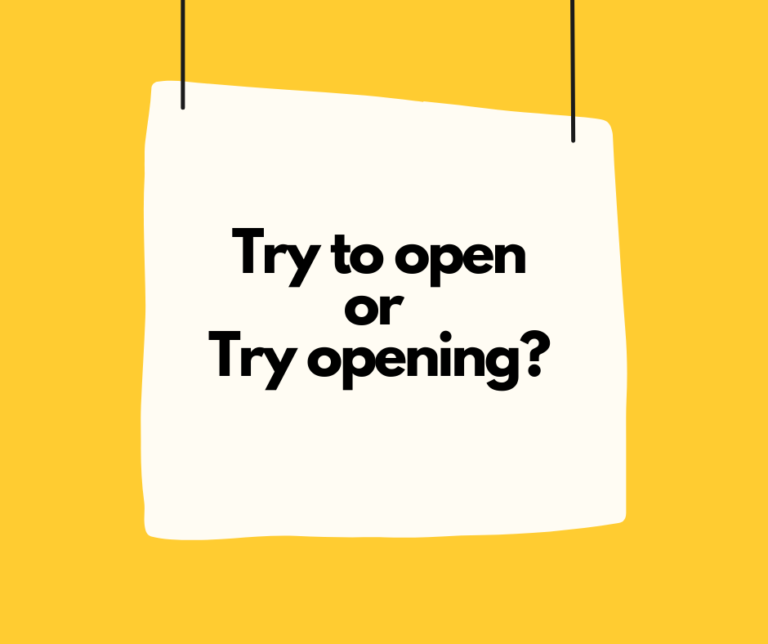When learning English, one of the trickiest aspects can be understanding the difference between gerunds and infinitives. Both are verb forms that can function as nouns, but they are used in different contexts. This guide will help you grasp the rules and nuances of using gerunds and infinitives correctly.
WHAT ARE GERUNDS?
A gerund is a verb form that ends in -ing and functions as a noun. For example, in the sentence “Swimming is fun,” the word “swimming” is a gerund. It acts as the subject of the sentence, even though it originates from the verb “to swim.”
Examples of Gerunds:
- Running is a good exercise.
- She enjoys reading books.
- Cooking requires patience.
WHEN TO USE GERUNDS
- As the Subject of a Sentence:
- Swimming is my favorite hobby.
- Reading helps improve vocabulary.
- Jogging every morning keeps me fit.
- After Prepositions:
- She is good at dancing.
- They talked about traveling to Europe.
- He is interested in learning new languages.
- After Certain Verbs:
- I enjoy reading.
- They avoid eating junk food.
- She suggested going to the park.
WHAT ARE INFINITIVES?
An infinitive is the base form of a verb, usually preceded by the word “to.” For example, in the sentence “To swim is fun,” the phrase “to swim” is an infinitive.
Examples of Infinitives:
- To run is a good exercise.
- She likes to read books.
- He needs to cook dinner.
WHEN TO USE INFINITIVES
- As the Subject of a Sentence:
- To swim is my favorite hobby.
- To travel around the world is my dream.
- To learn new languages is beneficial.
- After Certain Adjectives:
- It is important to study.
- She is eager to start her new job.
- He was happy to help.
- After Certain Verbs:
- He decided to leave.
- She wants to learn Spanish.
- They plan to visit their grandparents.
VERBS FOLLOWED BY GERUNDS OR INFINITIVES
In English, verbs can interact with gerunds and infinitives in different ways. Some verbs are always followed by gerunds, while others are always followed by infinitives. Additionally, there are verbs that can be followed by either a gerund or an infinitive, with or without a change in meaning. Understanding these nuances is crucial for mastering English grammar. Below, we explore different types of verbs and their usage with gerunds and infinitives.
1. Verbs Followed Only by Gerunds
Some verbs are always followed by gerunds. Here are a few examples:
- Enjoy:
- She enjoys reading books.
- Avoid:
- They avoid eating junk food.
- Consider:
- He considered moving to a new city.
- Admit:
- She admitted forgetting her keys at home.
- Recommend:
- Sarah recommended trying the new Italian restaurant.
- Discuss:
- They discussed starting a book club.
- Finish:
- I finished writing my report late last night.
- Imagine:
- Imagine traveling the world without a plan.
- Miss:
- We miss having family dinners every Sunday.
- Practice:
- She practices speaking French with her friends.
- Suggest:
- He suggested watching a movie after dinner.
- Risk:
- They risk missing their flight if they don’t leave soon.
2. Verbs Followed Only by Infinitives
Some verbs are always followed by infinitives. Here are a few examples:
- Agree:
- She agreed to help with the charity event.
- Decide:
- They decided to adopt a puppy.
- Plan:
- He plans to start a new business.
- Hope:
- We hope to visit the museum this weekend.
- Promise:
- She promised to call me later.
- Refuse:
- He refused to eat his vegetables.
- Learn:
- She learned to drive last summer.
- Offer:
- They offered to lend us their car.
- Expect:
- I expect to receive a response soon.
- Manage:
- He managed to fix the broken computer.
- Pretend:
- She pretended to know the answer.
- Choose:
- We chose to stay at a cozy bed and breakfast.
- Arrange:
- He arranged to have the documents delivered.
- Seem:
- It seems to rain every time we plan a picnic.
3. Verbs Followed by Either Gerund or Infinitive without a Change in Meaning
Some verbs can be followed by either a gerund or an infinitive without a significant change in meaning. Here are a few examples:
- Begin:
- She began singing at a young age.
- She began to sing at a young age.
- Continue:
- They continued working on the project despite the challenges.
- They continued to work on the project despite the challenges.
- Hate:
- He hates waiting in long lines.
- He hates to wait in long lines.
- Like:
- I like reading before bed.
- I like to read before bed.
- Love:
- She loves dancing at parties.
- She loves to dance at parties.
- Prefer:
- He prefers walking to work.
- He prefers to walk to work.
- Start:
- They started building their new home last year.
- They started to build their new home last year.
- Attempt:
- She attempted climbing the mountain.
- She attempted to climb the mountain.
- Can’t stand:
- He can’t stand listening to loud music.
- He can’t stand to listen to loud music.
- Continue:
- We continue learning / to learn new things every day.
- Hate:
- She hates cleaning the house on weekends.
- She hates to clean the house on weekends.
- Like:
- They like playing soccer in the park.
- They like to play soccer in the park.
- Love:
- He loves cooking for his family.
- He loves to cook for his family.
4. Verbs That Can Be Followed by Either a Gerund or an Infinitive with a Change in Meaning
Some verbs can be followed by either a gerund or an infinitive, but their meanings change depending on which form is used. Here are a few examples:
- Remember:
- Gerund: I remember locking the door. (I have a memory of locking it. That is, I recall that I actually did it.)
- Infinitive: I remember to lock the door. (I do not forget to do it. I make sure to lock the door.)
- Stop:
- Gerund: He stopped smoking. (He quit smoking.)
- Infinitive: He stopped to smoke. (He paused what he was doing in order to smoke.)
- Try:
- Gerund: She tried opening the door with a key. (She attempted to open it, but it might not have worked.)
- Infinitive: She tried to open the door. (She made an effort to open it.)
When followed by a gerund, these verbs often emphasize the action itself or the method used. In contrast, when followed by an infinitive, they typically highlight the intention or effort to achieve a goal. Understanding these differences is crucial for accurate communication. Here are further explanations:
Remember
- Gerund: I remember locking the door.
- Explanation: When using the gerund “locking,” the focus is on the action itself. This means you have a memory of the action of locking the door. You recall that you actually performed this action in the past.
- Concept Application: The gerund emphasizes the action that was completed and remembered. It highlights the fact that you have a memory of doing it.
- Infinitive: I remember to lock the door.
- Explanation: When using the infinitive “to lock,” the focus is on the intention or effort to perform the action. This means you make sure to perform the action of locking the door. It emphasizes that you do not forget to do it.
- Concept Application: The infinitive emphasizes the intention and effort to complete the action. It highlights the fact that you ensure the action is done, focusing on the intention rather than the memory of the action.
Stop
- Gerund: He stopped smoking.
- Explanation: When using the gerund “smoking,” the focus is on the action itself. This means he quit the action of smoking. He no longer engages in this activity.
- Concept Application: The gerund emphasizes the action that was ceased. It highlights the fact that he has given up smoking.
- Infinitive: He stopped to smoke.
- Explanation: When using the infinitive “to smoke,” the focus is on the intention or effort to perform the action. This means he paused what he was doing in order to start smoking.
- Concept Application: The infinitive emphasizes the intention and effort to perform the action. It highlights the fact that he took a break from his current activity to smoke.
Try
- Gerund: She tried opening the door with a key.
- Explanation: When using the gerund “opening,” the focus is on the action itself. This means she experimented with the action of using a key to see if it would work. The outcome might not have been successful.
- Concept Application: The gerund emphasizes the action and the method used. It highlights the fact that she attempted the action of opening the door using a key.
- Infinitive: She tried to open the door.
- Explanation: When using the infinitive “to open,” the focus is on the intention or effort to perform the action. This means she made an effort to open the door, focusing on the goal of opening it, regardless of the method.
- Concept Application: The infinitive emphasizes the intention and effort to achieve the goal. It highlights the fact that she attempted to open the door, focusing on her effort.
Regret
- Gerund: She regrets telling him the truth.
- Explanation: When using the gerund “telling,” the focus is on the action itself. This means she wishes she hadn’t performed the action of telling him the truth. She feels sorry about having done it.
- Concept Application: The gerund emphasizes the action that was completed and regretted. It highlights the fact that she feels remorse for having told him the truth.
- Infinitive: She regrets to tell you that she can’t attend.
- Explanation: When using the infinitive “to tell,” the focus is on the intention or effort to perform the action. This means she is sorry to inform you about her inability to attend. It emphasizes her regret in having to convey this information.
- Concept Application: The infinitive emphasizes the intention and effort to perform the action. It highlights the fact that she feels regret about having to inform you.
MASTERING GERUNDS AND INFINITIVES
Understanding when to use gerunds and infinitives can be challenging, as there is no strict rule to determine which verbs are followed by only gerunds, only infinitives, or both with or without a change in meaning. However, recognizing certain verb patterns can help. For instance, verbs that describe activities or states of mind often take gerunds, while those that express intentions, plans, or preferences typically take infinitives.
To truly master gerunds and infinitives, practice is essential. Write sentences using both forms and pay close attention to the verbs and prepositions that precede them. Over time, you’ll develop an intuitive sense for which form to use.
Understanding Verb Patterns
While there is no strict rule to determine which verbs are followed by only gerunds, only infinitives, or both with or without a change in meaning, there are some general patterns that can help:
- Verbs Followed by Only Gerunds: These verbs often describe activities or states of mind. Examples include “enjoy,” “avoid,” and “consider.”
- Example: She enjoys reading books.
- Verbs Followed by Only Infinitives: These verbs often describe intentions, plans, or preferences. Examples include “agree,” “decide,” and “plan.”
- Example: They decided to adopt a puppy.
- Verbs Followed by Either Gerunds or Infinitives Without a Change in Meaning: These verbs often describe actions that can be started, continued, or stopped. Examples include “begin,” “continue,” and “like.”
- Example: She began singing / to sing at a young age.
- Verbs Followed by Either Gerunds or Infinitives With a Change in Meaning: These verbs often involve memory, intention, or attempts, and the meaning changes depending on whether a gerund or an infinitive follows. Examples include “forget,” “remember,” and “stop.”
- Example: He forgot locking the door. (He doesn’t remember doing it.)
- Example: He forgot to lock the door. (He didn’t lock the door.)
Developing Intuition
Since there is no one-size-fits-all rule, the key to mastering gerunds and infinitives is consistent practice and exposure. Here are some tips to help you develop an intuitive sense for these forms:
- Read Regularly: Pay attention to how native speakers use gerunds and infinitives in books, articles, and other written materials.
- Write Often: Practice writing sentences and paragraphs using both forms. This will help reinforce your understanding.
- Listen Actively: Listen to conversations, podcasts, and other audio materials to hear how these forms are used in context.
- Practice with Exercises: Use grammar exercises and quizzes to test your knowledge and identify areas for improvement.
- Seek Feedback: Share your writing with teachers or peers and ask for feedback on your use of gerunds and infinitives.
By incorporating these practices into your learning routine, you’ll gradually become more comfortable and confident in using gerunds and infinitives correctly.
ACTIVITY 1. SAMPLE DIALOGUE USING GERUNDS AND INFINITIVES

Emily: Hey John, what are you planning to do this weekend?
John: Hi Emily! I’m thinking about going hiking. I love exploring new trails. How about you?
Emily: That sounds fun! I’m planning to visit my grandparents. They always enjoy having me over.
John: That’s nice. I remember visiting my grandparents every summer. They used to tell the best stories.
Emily: Yeah, grandparents are great. By the way, did you finish reading that book I lent you?
John: Oh, I forgot to bring it up. I finished reading it last night. It was amazing!
Emily: I’m glad you liked it. I’m trying to find more books like that.
John: You should consider joining a book club. They often recommend great reads.
Emily: That’s a good idea. I’ll look into it. Do you want to grab a coffee later?
John: Sure! I can’t stand waiting in long lines, though. Let’s go to that new café downtown.
Emily: Perfect! I’ve been meaning to try it. See you at 3?
John: See you then!
ACTIVITY 2: FILL IN THE BLANKS WITH INFINITIVES OR GERUNDS
Complete the sentences with the correct form of the verb in parentheses (gerund or infinitive).
- She enjoys _______ (read) books in her free time.
- They decided _______ (adopt) a puppy from the shelter.
- He can’t stand _______ (wait) in long lines.
- We hope _______ (visit) the museum this weekend.
- She suggested _______ (watch) a movie after dinner.
- He promised _______ (call) me later.
- They risk _______ (miss) their flight if they don’t leave soon.
- She learned _______ (drive) last summer.
- He prefers _______ (walk) to work.
- I finished _______ (write) my report late last night.


